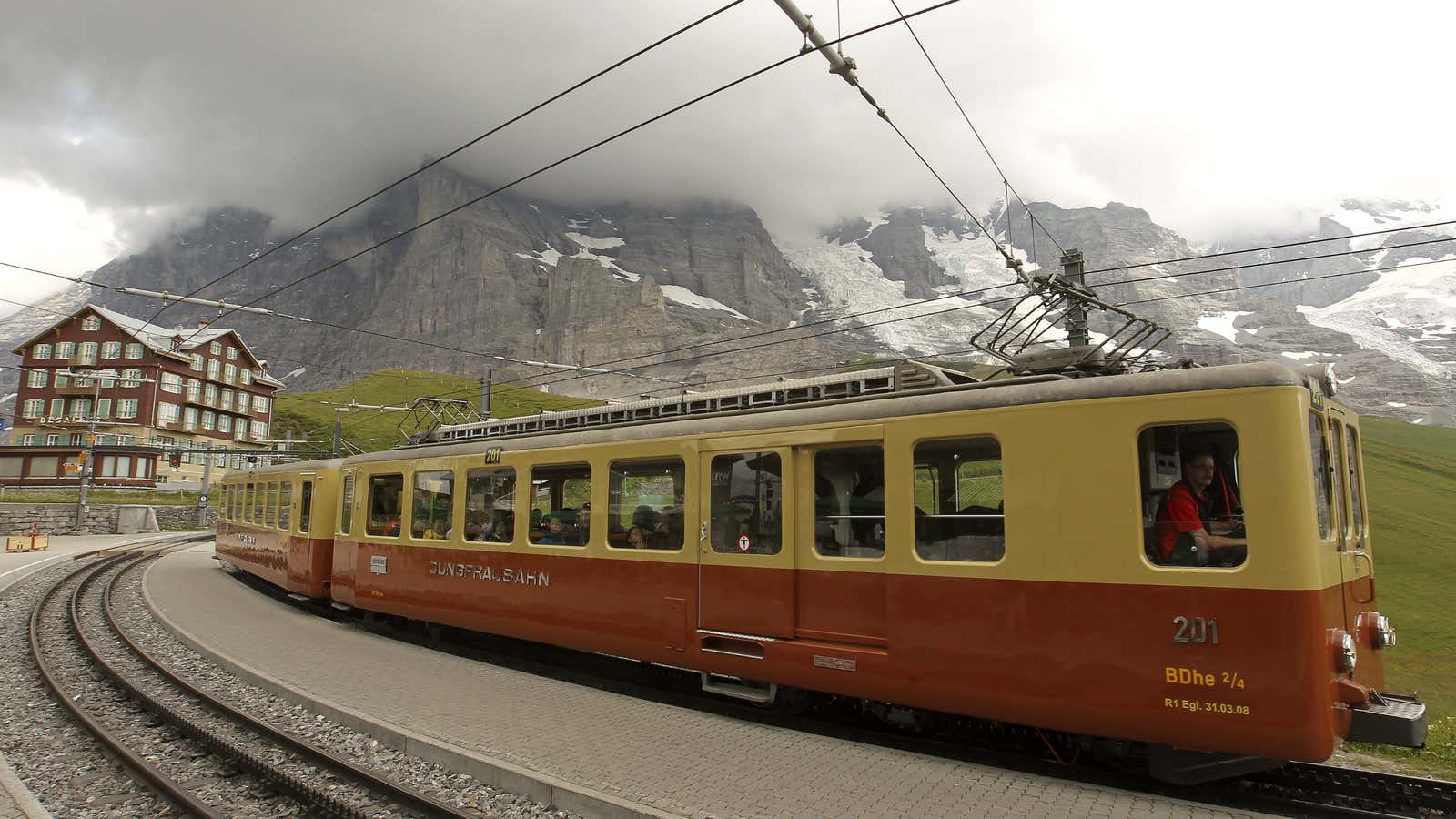Swiss media are abuzz with the news of the country’s faltering rail system. Last year, the state-run rail operator missed its target for punctuality; only 87.5% of trains arrived within three minutes of their scheduled arrival. This is down from the 89% target as well as the second consecutive year of deterioration—it recorded an on-time performance of 89.8% in 2011 and 88% in 2012.
If a three-minute window sounds strict, that’s because it is. Most countries apply a looser definition of being “on time”, and even then they struggle to match Swiss levels of efficiency. Around 90% of British trains ran on time over the past 12 months, although this means within five minutes of schedule for short journeys and 10 minutes for longer ones; only 83.7% trains were on time in the past month. By a five-minute standard, short-haul trains in Germany arrived on time 91.9% of the time in November (the latest figures), but less than 70% on longer routes. Sweden has reported big gains in punctuality in recent years, thanks in part to redefining the on-time window for some trains from five to 15 minutes.
Even if trains in the rest of Europe struggle to keep up with the Swiss, they are still far more punctual than their counterparts in the US. Even in the Northeast Corridor, where Amtrak trains are not as disrupted by freight traffic as in the rest of the country, on-time performance is lucky to reach 80% using a 10-minute standard. At the other end of the spectrum, the average annual delay on the Shinkansen “bullet trains” in Japan is a mere 36 seconds.
To anyone outside of Zurich or Tokyo, Swiss anxiety about the very few trains that miss their incredibly demanding schedule may seem like much ado about nothing. But per capita, the Swiss and Japanese railways are the busiest in the world by far. Switzerland will hold a referendum next month on a new financing package for its railways, which includes an increase in ticket prices. This is why the latest punctuality statistics come at a bad time for a railway operator already under pressure from the tyranny of high expectations.
